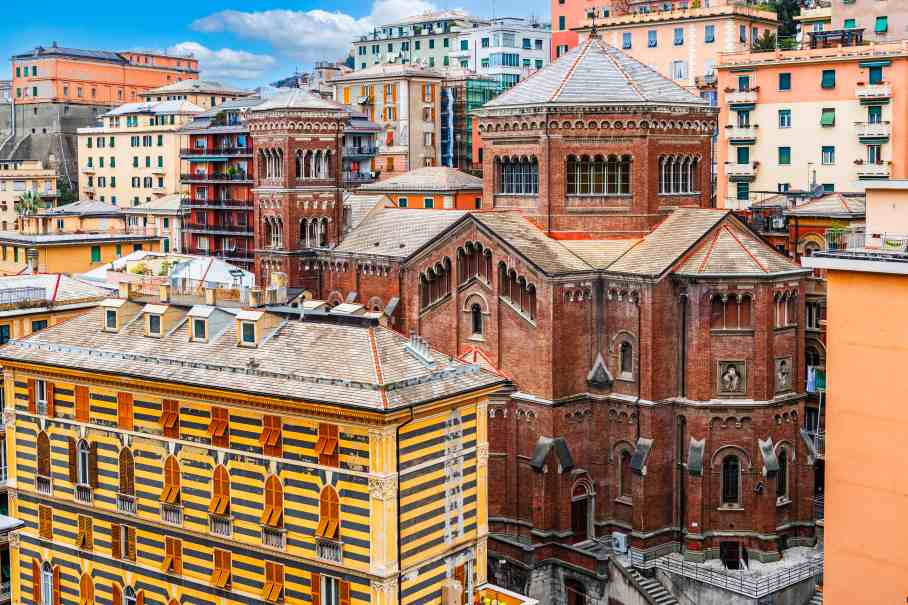Tuesday, 16 September 2025
Can a US citizen buy property in Italy? Essential insights for buyers
Italy’s property market is open to foreign buyers, including US citizens, with few restrictions. From historic farmhouses in Tuscany to modern apartments in Milan, there’s a wide range of options.
Buying a home in Italy can be both a lifestyle choice and an investment. You do not need to be a resident to make a purchase, but you will need an Italian bank account and an Italian tax code, known as a Codice Fiscale. Thanks to reciprocity agreements, Americans have the same ownership rights as Italian citizens. It is advisable to engage local professionals, such as a lawyer, when engaging in the real estate purchase process in Italy to handle all legal aspects effectively. The Italian legal system may involve complex bureaucratic processes, which can affect the speed of property transactions.
The property buying process includes finding a property, hiring professionals, signing a preliminary contract, and finalizing the purchase in front of a notary. The entire process can take three to six months from the initial search to the final closing, depending on the complexity of the transaction.
Eligibility and residency requirements
US citizens can purchase property in Italy without holding residency. However, long-term stays may require a visa or residency permit. Non-EU citizens, including Americans, can typically stay in Italy for up to 90 days within a 180-day period without a visa.
The Elective Residence Visa is a popular choice for those who wish to live in Italy for extended periods. Another option is the Digital Nomad Visa for remote workers. To apply for the Elective Residence Visa, applicants must demonstrate sufficient passive income and property ownership in Italy.
No matter your residency status, the first step in any property transaction is obtaining a Codice Fiscale. This number is essential for tax considerations and financial activities, including buying real estate.
Finding a property
You can search for properties through licensed real estate agents, online listings, or direct contact with private sellers. Working with a reputable agent is recommended, as they can guide you through local regulations and real estate prices. It is also advisable to engage a local real estate agent to help identify suitable properties.
Property prices vary widely based on location, size, and condition. Urban apartments, countryside villas, and seaside homes each come with different costs and maintenance needs. Historic centers in Rome, Florence, and Milan command premium house prices. Visiting properties in person is highly recommended before committing to a purchase.
In most cases, the buying process takes between three and six months, but it can be longer if the sale involves complex legal checks.
Hiring professionals
To purchase property in Italy, you’ll need a notary to formalize the sale and register the deed. Many buyers also hire a lawyer to review contracts and ensure the property has no legal issues. Notary fees in Italy typically range from 1-2,5% of the purchase price, contributing to closing costs.
A real estate agent can help you locate properties and negotiate prices. Some buyers also choose to work with a property manager, especially if they plan to generate income from rental properties or will be living abroad.
The final contract, known as the Rogito, is signed in the presence of a notary. This step officially transfers ownership and registers the property in your name, including updates in the land registry tax system.

Preliminary contract and due diligence
Once you have agreed to buy a property, a preliminary contract called the Compromesso is drawn up. This document lists the agreed price, payment terms, and any conditions. It is legally binding and usually involves paying a deposit.
Before signing, it’s important to carry out due diligence. This involves checking for any debts on the property, confirming boundaries, and making sure the title is clear. A lawyer can help ensure there are no hidden legal issues. Skipping this step can lead to costly problems later.
Financial considerations
When budgeting, you should factor in not only the purchase price but also additional costs like notary fees, taxes, and registration charges, which can add 10–20% to the total investment. Buyers should also consider potential renovation costs and remember that registration tax is generally 2% for primary residences and 9% for secondary homes. Additionally, agency fees are usually 3-5% of the property price, split between buyer and seller.
If you require financing, you can apply for a mortgage through an Italian bank account. Loan approval will depend on your income, credit history, and the property’s value. Rental income from properties in Italy must be reported and is subject to local taxation, with U.S. capital gains tax implications for Americans.
Ongoing ownership costs include the main property tax, maintenance, and utility bills. Non-residents may have higher rates for certain charges. Purchasers are responsible for property taxes, which vary based on residency status and whether the property is purchased from a private individual or a company. Value-added tax may also apply to certain transactions.
Tax Implications
Owning property in Italy comes with several taxes. The main ones are IMU (municipal property tax) and TASI (municipal service tax). If you rent out your property, you’ll also need to pay income tax on the rental earnings. Annual property taxes in Italy include IMU, TASI, and TARI, with IMU mainly applied to non-residents. IMU rates can range from 0.4% to 0.8% depending on the location.
The United States and Italy have agreements to avoid double taxation. You may be able to claim a foreign tax credit on your US return for property-related taxes paid in Italy. Without careful planning, American property owners can face double taxation issues. Reporting rental income to the IRS is essential, as the US taxes worldwide income.
Italian inheritance laws also differ from US rules, following a “forced heirship” system. This means certain heirs are entitled to a share of the estate, regardless of your will. Understanding these rules helps Americans plan their property succession and avoid surprises.
Property management and maintenance
If you won’t be living in Italy full-time, a property manager can handle maintenance and rental arrangements. Buying property remotely is possible but not recommended due to legal and administrative hurdles.
Annual property taxes and service fees vary by region and property type. Owners of historic or rural homes may face specific rules for preservation or energy efficiency. Hiring local experts helps maintain compliance and protects your investment.
The Italian government provides guides and local contacts to assist foreign property owners. This makes it easier to manage repairs, utilities, and routine maintenance efficiently.
Commercial properties
US citizens can also invest in commercial real estate, such as office buildings, retail spaces, or industrial properties. These purchases may need extra permits and strict adherence to zoning laws. Americans can buy residential, commercial, or agricultural land, with certain restrictions depending on the property type.
Owning a high-value commercial property can sometimes qualify buyers for an Investor Visa, allowing long-term residency in Italy. Careful planning is essential to meet legal requirements and maximize the investment’s potential.

The Italian real estate market
Italy’s real estate market offers a wide range of options, from affordable apartments in small towns to luxury villas in prime locations. Prices and demand can shift depending on local economic conditions, so research is key.
Government programs sometimes offer tax incentives for specific properties, like historic restorations or energy-efficient upgrades. These programs can reduce costs and make certain properties more attractive to buyers.
Property types
Options include apartments, standalone houses, farmhouses, and villas. Each type comes with different purchase costs, maintenance needs, and potential rental income.
Rural homes often cost less upfront but may require more upkeep. Urban apartments can be easier to rent to tourists or long-term tenants, making them appealing for income-generating properties.
Americans buying property in Italy
Many Americans are drawn to Italy for its culture, scenery, and lifestyle. The buying process is generally open and straightforward if you follow legal steps and work with trusted professionals.
Government agencies and local organizations offer official guides, consultations, and property listings to support foreign buyers in making informed decisions.
Can a US citizen buy property in Italy? Key takeaways
Yes, US citizens can buy property in Italy, but it comes with several legal, tax, and administrative considerations. From understanding local taxes to navigating inheritance rules, careful planning helps protect your investment. Working with professionals and local experts makes the process smoother and less stressful.
Property types and market conditions vary widely, so researching options and knowing the costs upfront is essential. Whether looking for a vacation home, rental property, or commercial investment, informed decisions lead to better outcomes and long-term benefits.
If you’re thinking about Italian citizenship or property ownership, we can guide you through the process with confidence.
At Aprigliano International Law Firm, we help clients understand Italian legal requirements and explore options for citizenship, property ownership, and more.